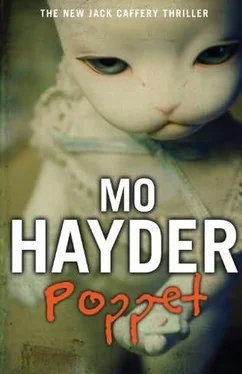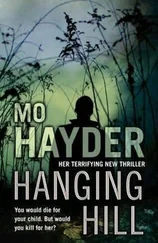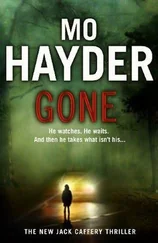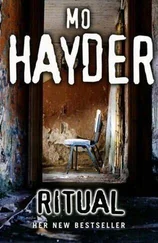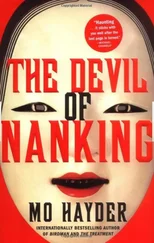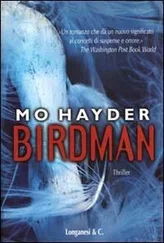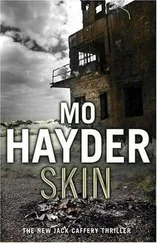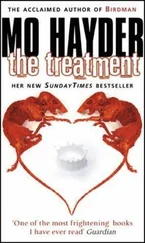Next he sends one of the civilian investigators out in the van to get the hard copies of the Isaac Handel case from the archive. It’s going to take most of the day, so in the meantime he studies the case outline in the HOLMES database. Then he puts in phone calls to a couple of the force’s old warhorses who’ve been around long enough to remember the Upton Farm killings. They fill in the details Caffery wouldn’t find in HOLMES. They’re not pretty.
As he works, Misty’s eyes seem to follow him. Every time he looks up from his desk, it’s as if she’s saying, What about me? Have you forgotten me? He almost holds a hand up to deflect the glare of her attention. He’d turn her to face the wall if he didn’t think that would be worse.
He checks his blank phone screen, wondering whether to call Flea. He starts to compose a text message, but thinks better of it, pockets the phone and sits for a while swinging his hands at his sides, not sure what to do with himself. If this thing ever gets resolved it will be on Flea’s terms, and in her own good time.
Irritated now, he pulls on his coat, heads down the stairs to the car park and gets in the car. It feels good to be moving. It feels good to be thinking about something else. Even Isaac Handel – a teenage psycho who killed both his parents and did unspeakable things to their bodies.
He drives out through the west Bristol suburbs wondering how much faith one should put in the mental-health and justice systems in the UK. The answer is, of course, that one can never be one hundred per cent confident. How often does a person secretly torment fellow patients? And how often does someone like that get away with it? Even get released from the facility, unchecked and unmonitored?
Ordinarily, Caffery would ride roughshod over anyone who had the nerve to ask for a favour then slap conditions on it. But, strangely, he likes AJ. Besides, after what Caffery’s heard he’s happy not to go to Beechway unit, and instead to go directly to Isaac Handel. At the very least, he wants to be sure Handel’s sticking to the terms of his discharge. To find out who’s keeping track of his movements.
His supported-living placement is the Avonmere Hotel, overlooking the muddy riverbanks. Caffery pulls up outside a little after midday. The exterior is fitted out to look like a standard B&B, though the sign in the sitting-room window probably always reads ‘no vacancies’. Caffery knows places like this. The clientele won’t look much like visiting businessmen or tourists, either. In fact they’ll all be addicts and s37/41 discharges.
No one stops Caffery walking in or peering into rooms. The ground-floor accommodation is set up for group socializing – a sitting room, dining room and games/TV room; the upper floors are probably divided into bedsits. He finds a door marked ‘Office’ at the end of the hall and opens it. Still no one has stopped him. The manager is with a client, but one glance at Caffery in suit and tie, and he bends to the client and murmurs, ‘Can we finish this later?’
The client swivels in Caffery’s direction, his movements slow and slightly jerky. His eyes don’t seem to register anything, but he shoots to his feet so fast he nearly topples over.
‘No rush, mate,’ the manager says.
The guy nods three times, looking at his feet. Bringing his hand up to the crown of his head, he swats his hair with the palm of his hand, smoothing it forward so that it lies flat on his forehead. Caffery stands to one side, holding the door open. The guy lumbers out, not making eye contact. Caffery waits until he’s gone before showing his warrant card.
‘Detective Inspector Jack Caffery.’
‘Yes,’ the manager says. ‘Been looking forward to meeting you.’ He must be in his late thirties, but his face has a childlike quality that is heightened, paradoxically, by his baldness. He has shaved what little of his hair remains, giving him the appearance of an ageing cherub. He wears a black stud in his right ear and a Celtic-knot steel ring on the middle finger of his right hand. Behind his desk is a poster of The Smiths, Glastonbury 1984. He offers his hand.
‘Bill Hurst.’
Caffery shakes his hand. Notices that as soon as he releases it, Hurst brings his hand straight to the back of his neck.
‘I’m here to speak to Isaac Handel.’
‘Yes – yes.’ Hurst stands awkwardly – scratching his neck – avoiding meeting Caffery’s eyes. ‘Yes, you did say.’
‘So? Is there somewhere private I can chat to him?’
‘Thing is …’ he begins sheepishly. ‘About Isaac …’
‘Yes?’
‘Well, it’s a bit embarrassing.’
‘What is?’
‘He’s kind of not here at the moment.’
‘Beg pardon?’
‘Not here.’
‘That’s what I thought you said. So where, kind of, is he?’
‘Ummmmm … not a hundred per cent sure, to tell you the truth.’
‘When I phoned, you said I could speak to him.’
‘Yes – I thought he’d have come back by then. You’ve got to understand, this isn’t a secure hostel. Clients are required to sleep here, but they’re free to go wherever they want during the day as long as they’re not breaking any restrictions in their discharge papers.’
Caffery takes a moment to rein in his impatience. He counts to ten in his head. ‘OK, OK. Let’s start from the beginning – when did you last see him?’
Hurst begins to fidget. ‘Ummmm …’
‘Come on, spit it out – this morning?’ Hurst doesn’t answer. He scratches his neck harder. ‘Jesus!’ Caffery exhales. ‘Yesterday?’
‘I think so.’
‘You think so?’
‘It’s not a perfect system. I’m short-staffed, just had two phone calls from people calling in sick. It’s the uncertainty about what the government wants to do to our jobs.’
‘Fantastic. Outstanding.’ Caffery shakes his head, weary. The more he sees, the more he’s wondering why Handel was ever released into a flimsy place like this. ‘He must have slept somewhere last night?’
Hurst shrugs.
‘You’ve reported him missing?’
‘This morning. The Community Mental Health Team will take it from here.’
He still can’t look Caffery in the eye. Christ, what a spectacular jerk this guy is.
‘Anyone here he talked to? Anyone who might point me in the right direction?’
‘Not really – Handel was a bit of a lone wolf from what I saw of him. Didn’t talk to anyone that I saw, just listened to his iPod, kept himself to himself.’
‘And he was compliant?’
‘Mostly. A bit agitated. He was always playing “All Souls’ Day” on his iPod. You know?’ He gives Caffery a faintly hopeful look. ‘The Ataris? Best pop punk to come out of the States in decades?’
Caffery sighs. Shakes his head.
‘It’s only a day,’ Hurst protests. ‘Not that long.’
‘You know how lame that sounds? Even as it’s coming out of your mouth, a part of you must be thinking: this is lay-ayme.’
Hurst dips his head. ‘Point taken.’
‘When’s his depot due?’
‘The day after tomorrow.’
Two days before the antipsychotic depot injection is due. From the little Caffery knows about mental illness, Handel’s stability will disintegrate rapidly if that appointment is missed.
‘I need to see his room.’
Hurst’s eyes widen a fraction. ‘Awww, mate, I’m sorry – I can’t allow that. Everything in this place is based on trust – the staff’s trust for the clients and the clients’ trust in the staff. I can’t go letting you into someone’s room without a really, really good reason.’
‘He’s on an s47 conditional discharge – and staying in the hostel every night was one of those conditions. He’s not complying, which is a criminal act, dah de dah. I won’t patronize you by reciting the spiel, you’ve been here before, you know the drill. Rooms are upstairs, aren’t they?’ Caffery is already out of his chair. ‘Maybe I’ll just knock on every door till I find the right one.’
Читать дальше
